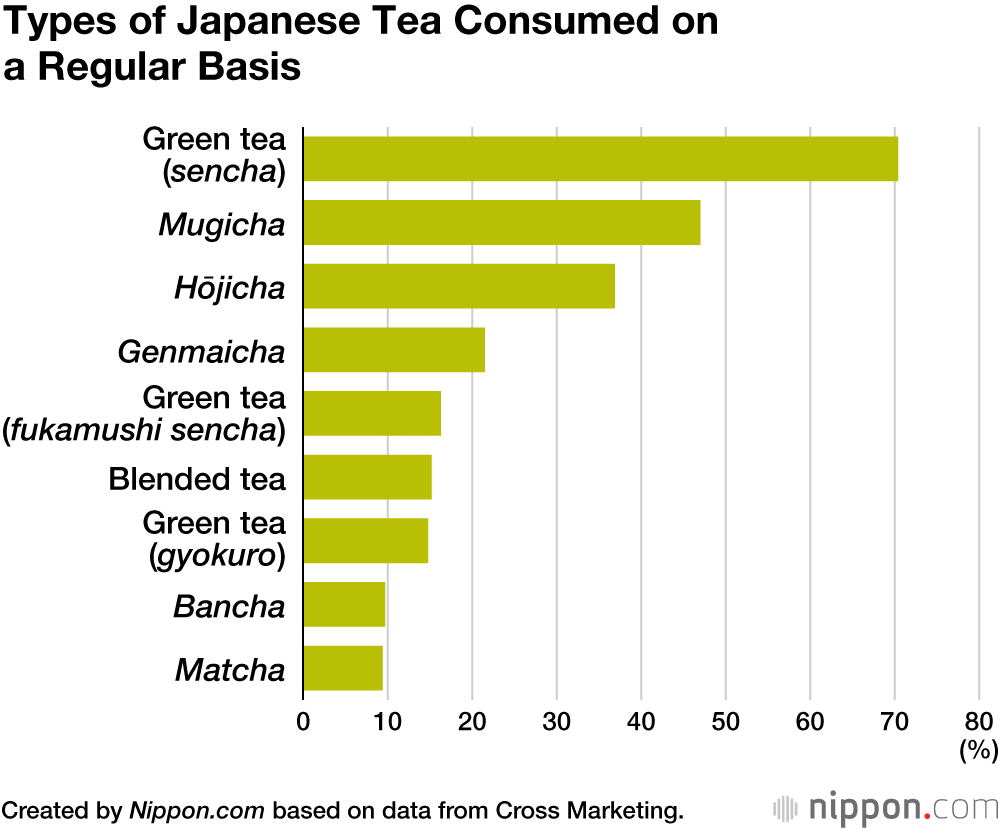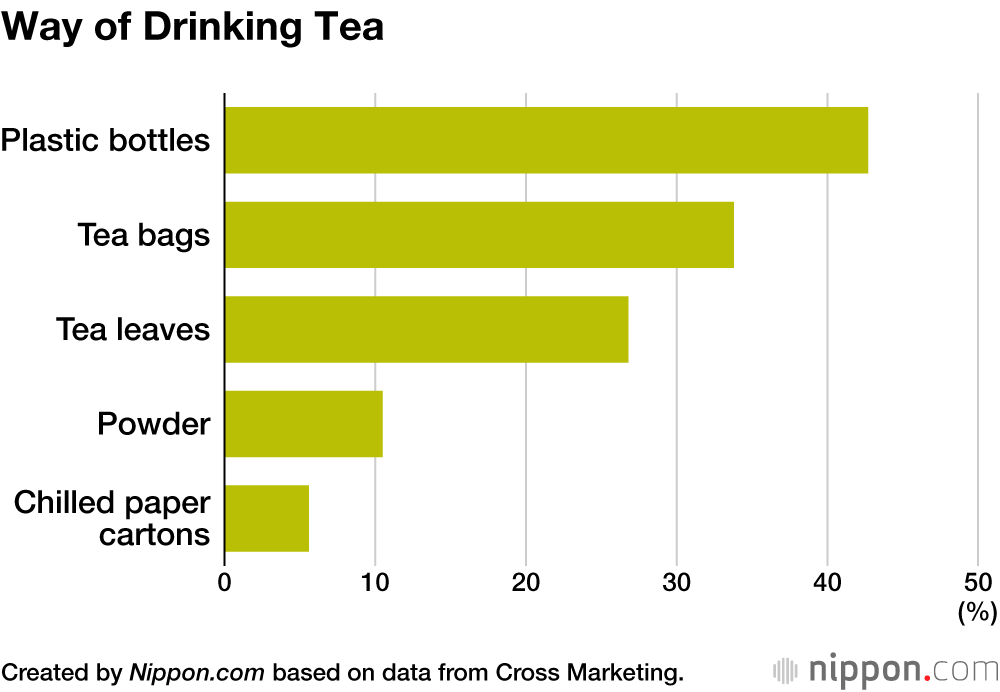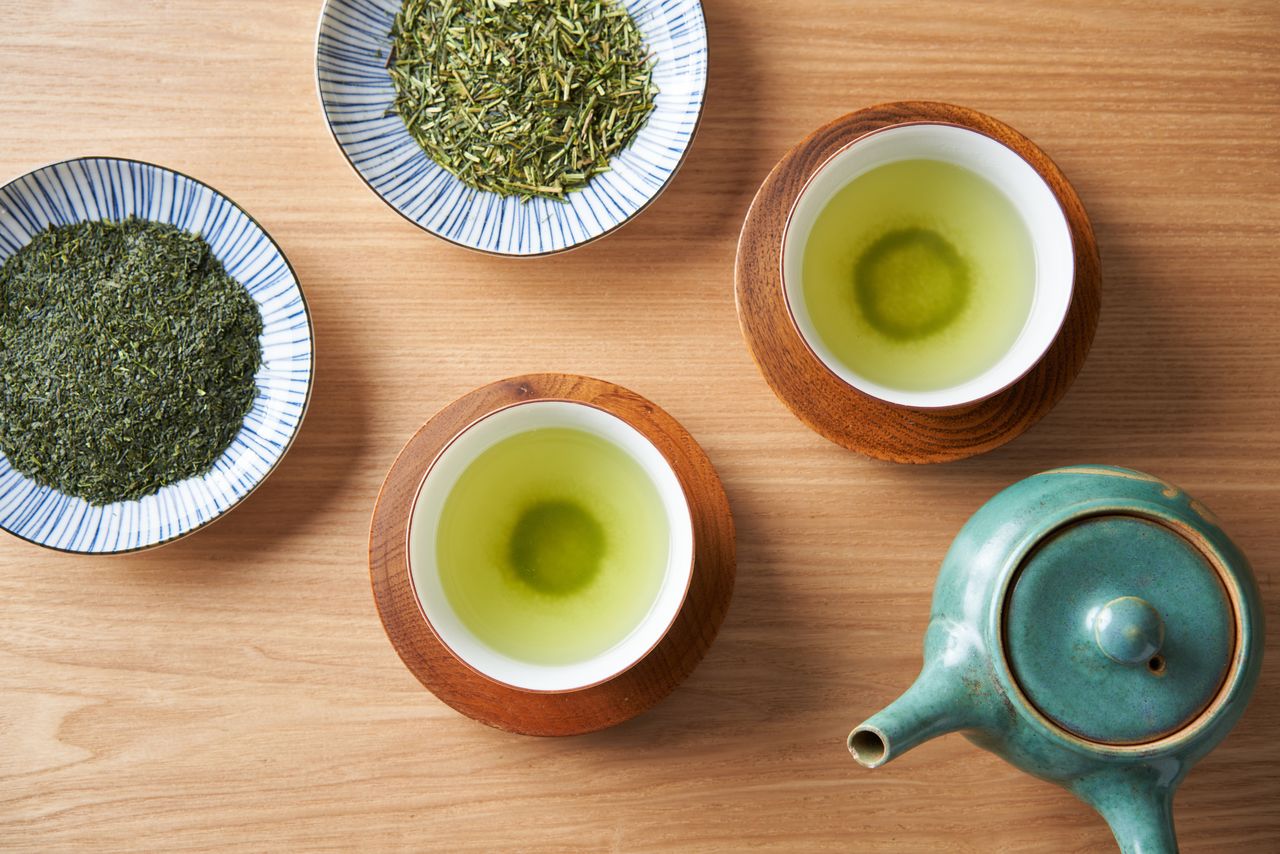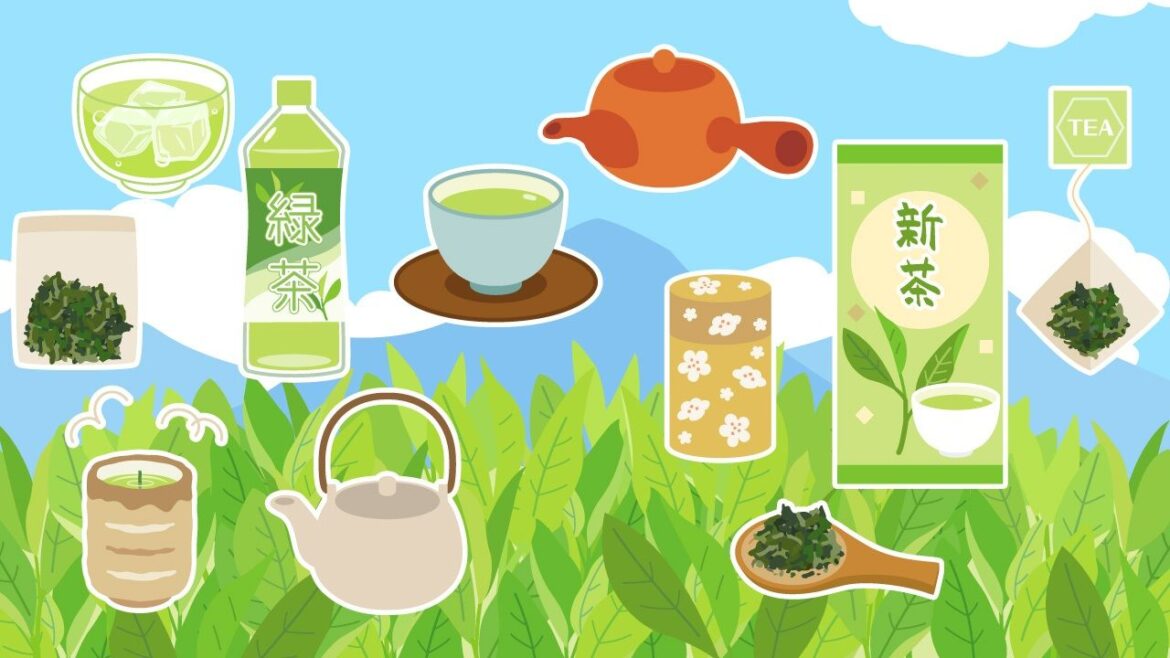Japan Data
Food and Drink
Lifestyle
May 29, 2025
Sencha (steamed green tea) was the most popular Japanese tea according to a recent survey, ahead of mugicha and hōjicha.
In April, the Tokyo market research firm Cross Marketing surveyed 1,100 people in Japan aged 20 to 69 about their tea habits. The results showed that sencha (steamed green tea) was the most common type of Japanese tea consumed on a daily basis, selected by 70.4% of respondents, including over 60% of those in their twenties and over 80% of those in their sixties. Mugicha (roasted barley tea) ranked second at 47.0%, followed by hōjicha (roasted green tea) at 36.9% and genmaicha (green tea blended with roasted brown rice) at 21.5%. Matcha (powdered green tea), perhaps the most iconic of Japanese teas, was selected by just 9.4%.
The survey divided standard green tea into three varieties: sencha; fukamushi sencha, which is steamed for longer than ordinary sencha; and gyokuro, which has a distinctive flavor due to the buds being grown under cover to block out direct sunlight.

The most common way of drinking tea was “plastic bottles” at 42.7%, followed by “tea bags” at 33.8%. Only a quarter (26.8%) of respondents said that they brew tea themselves from tea leaves. Even among those in their sixties, who lived through times when it was the norm, just 43.2% said they brew their own tea. It seems that bottled tea has become the new standard.

The top three impressions of Japanese tea were “it’s healthy because of the catechin” at 37.8%, “it’s essential for meals” at 33.3%, and “it’s suitable for many occasions because it’s not sweet” at 28.3%, demonstrating that Japanese tea is valued for its health benefits as well as versatility.

(© Pixta)
(Translated from Japanese. Banner photo © Pixta.)
tea
green tea


AloJapan.com